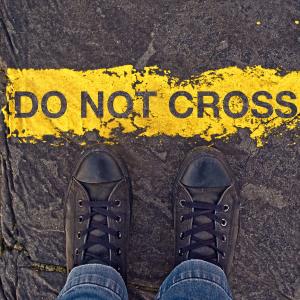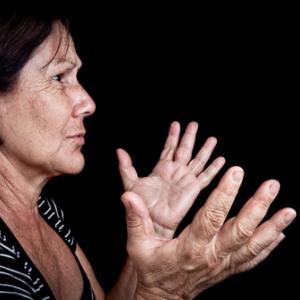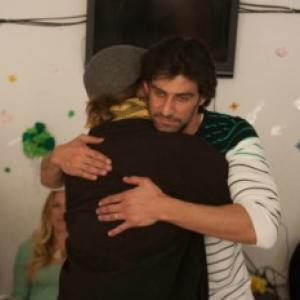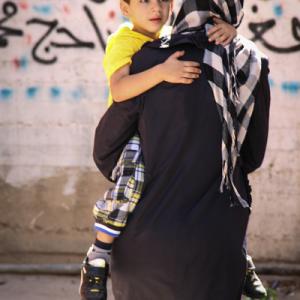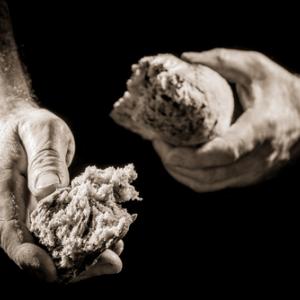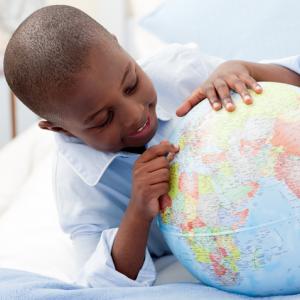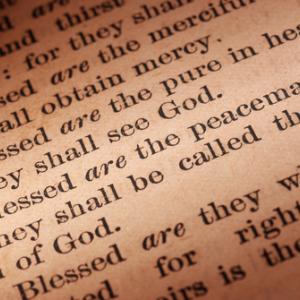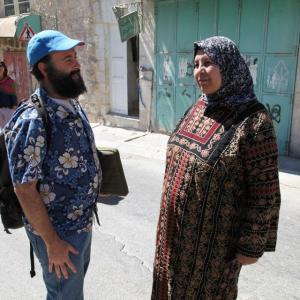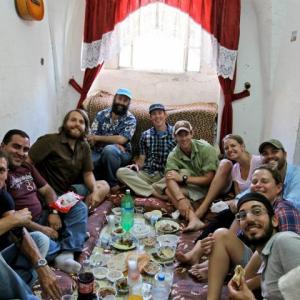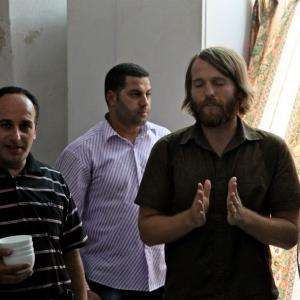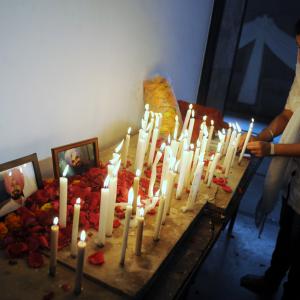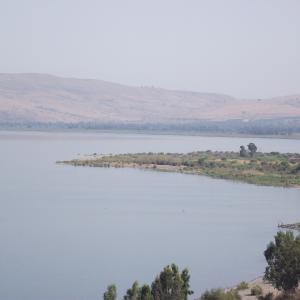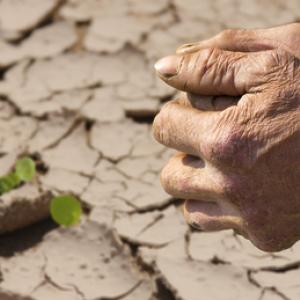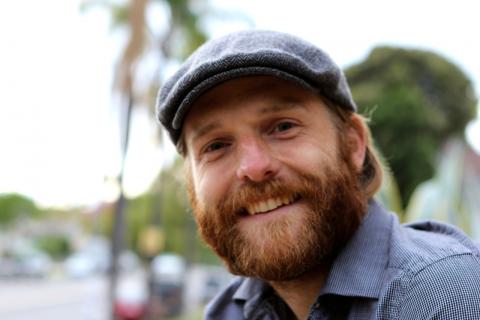
He writes for numerous publications including USAToday, Red Letter Christians, Sojourners, and RELEVANT, is a contributing author to multiple books and has written three himself; Mending the Divides: Creative Love in a Conflicted World, Thin Places: Six Postures for Creating and Practicing Missional Community and Teaching Through the Art of Storytelling. Jon regularly speaks at churches, universities and conferences and has a master’s degree from Fuller Theological Seminary in theology and ethics. He lives in San Diego with his wife, Jan, three daughters (Ruby, Rosie & Lou) and one son (Hank) where they co-lead an intentional Christian community seeking to live as a reconciling presence in their neighborhood of Golden Hill.
Find Jon at jonhuckins.net, Twitter, or Facebook.
Posts By This Author
Pentecost and the Freedom to Be in All the Wrong Places
Pentecost celebrates the giving of the Holy Spirit and reminds us that our story isn’t static but dynamic, alive, and unfolding. In the same way that the disciples moved out from Jerusalem after Pentecost, we are to move out of our places of comfort and complacency as we join God in the world he is making.
When Immigration Takes a Human Face
I recently looked out my front door and saw a woman sitting on the stairs of my patio. She was out of breath, sweaty, and had a large basket next to her full of cans and plastic bottles to be recycled. She looked desperately in need of some rest and refreshment. I’m pretty good at ignoring people in need (sadly), but when they come to your physical doorstep, I couldn’t imagine not stepping outside to check on this woman.
Opening our front door, she looked up at me with a bit of concern on her face thinking I might ask her to get off my patio. To calm her nerves, I simply sat down on the steps next to her and we exchanged warm smiles. Because she offered me a greeting in Spanish, I quickly realized she didn’t speak much English and I gave my best shot at speaking in Spanish. Over the next 10 minutes, we simply sat on my patio overlooking the main street of our neighborhood that runs in front of my house. Sometimes we talked, sometimes we just sat in comfortable silence. Her name was Conchetta. Finally, I asked if I could get her some food and a cold drink and she quickly said, “yes.”
After taking in some needed nourishment, Conchetta, offered me a warm smile filled with the richness of humanity and gratitude, and leisurely went back to work assembling the best of our neighborhoods “trash” so she could bring some life to her family.
Our faith community has spent a lot of time over the years becoming students of our neighborhood. As a result, we discovered that roughly 60 percent of our neighborhoods’ residents are Latino (most are Mexican because of our proximity to the border), and a high percentage of those are undocumented. In fact, it’s a safe assumption that my new friend, Conchetta, is undocumented.
Getting Beyond Infighting to a Unified Church
It has been a tough go for the church in the United States over the past couple months. The name calling, division, and posturing reached a deafening volume last week in the wake of the World Vision controversy around employing those in gay marriage.
Noise.
Massive amounts of energy poured into proving our “rightness” and your “wrongness.”
Relationships severed. Most without ever having created the space to share a meal and simply listen to one another.
Social media. Interviews. Articles. Press releases.
Noise.
There have been so many chiming in on this thing that I saw no need to jump in and, well, to be honest, I’ve just been sad. Sad at the failed state of discourse within the church. Sad at the demonization. Sad that hungry kids across the world were losing their access to basic needs to live as a result of our inability to live, love and lead … together.
7 Lessons About Peace From My Time in the Middle East
Having just gotten home from guiding another The Global Immersion Project Learning Community deep into the lives of the unheralded heroes in the Holy Land to learn from their often untold stories, I am processing emotions, thoughts, and reflections that will soon bud into a renewed set of practices at home and abroad. I have now been to Israel/Palestine quite a few times, and it would be easy to think the experience becomes mechanical or normal or whatever. Well, for me, that simply hasn’t been the case. We encourage our participants to enter the experience in the posture of a learner rather than a hero. I try to do the same, and in doing so, am continually convicted, challenged, and inspired by our remarkable friends and peacemakers embedded within this conflict.
Here are 7 learnings that have risen to the surface since landing back on home soil:
Smoking What We’re Growing: 8 Things That Happen When We Live (or Don’t Live) What We Talk About
I was down in Mexico a few years ago for a gathering of peers who are leading faith communities around the world. It was a rich time of conversation, encouragement, and visioning.
Walking through a local Mexican neighborhood between sessions, something struck me. While those of us in the Minority World (often called the 1st or Western World) are thinking and talking about our theology, most of the folks in the Majority World (often called the 3rd World) have no choice but to simply live into their theology. Talking about our theology, faith, and practice in lecture halls, church buildings, and conference rooms is a luxury that the vast majority of Jesus followers in the world have no opportunity to participate in.
It’s not necessarily a bad thing, but it is reality. And those of us with this luxury better own up to it, because it is easy for us in the West to think we have a corner on the market of theology, which we then project (whether consciously or subconsciously) onto the rest of the world. But who's to say theology built in academia is any more valid than theology build in the realities of everyday life?
Is It Possible to Celebrate Christmas and the Birth of Jesus on the Same Day?
There is certainly a warm, nostalgic feeling about the Christmas season. Social media fill up with pictures of Starbucks holiday cups and we get the play-by-play of Christmas trees being purchased and filled with homemade ornaments. Holiday parties become about as frequent as breathing and there is a general sense of camaraderie among people who wouldn’t otherwise interact.
As a local practitioner and neighbor, I’d even go as far as saying this season brings about the most opportunity for new relationships and shared life in the realities of everyday.
Last week I was talking to my 3-year-old daughter about Christmas. She knows we are going to see grandparents and cousins and even knows a thing or two about gifts being exchanged.
And then I asked her, "Whose birthday do we celebrate on Christmas?" With a big smile, she said, "Santa!"
Now, I get it. She’s 3 years old, it’s kinda cute and harmless and whatever.
But there is something to this.
Our family never talks about Santa Claus, but we regularly talk about Jesus and even go as far as trying to live like him as best we can. When we do talk about Christmas and presents, we try to talk about how we will be giving them away to friends, family, and people who need them.
But, despite our best efforts, Christmas is associated with Santa Claus. Now, if it were the historical “Santa Claus” who gave away his best to save the lives of some children, that’d be awesome. But, no, this is the Santa Claus of consumption who promotes values of selfish acquisition rather than sacrificial giving.
Syria: The Stuff No One Wants To Talk About
I have read countless articles from political, religious, and ethical perspectives on why or why not the U.S. should militarily intervene against the Syrian regime. Most do a decent job evaluating the situation, but I have yet to read one that really puts the human element on the table as a deciding factor.
A few months ago I was going to bed in my hotel room in Tel Aviv when I saw the breaking news alert that there was rocket exchange between Hamas and Israel in and around Gaza. While I have been to many places in "conflict," there is something much different about being somewhere that is only miles away from live fire.
I started playing out the situation in my head: "What if this expands into a major conflict? Can I catch a flight back home to be with my family before it gets worse? I'm only 30-40 miles away from the active conflict, am I already in range sitting in this hotel room?"
Anxiety. Fear. Uncertainty.
Now let me be clear, that experience of anxiety and fear is NOTHING compared to what most Israeli's, Palestinians, Egyptians, or Syrian's have felt in recent years (and MANY other populations). But — even if only in some small way — I could immediately feel the weight of pending war. It is palpable. It is crippling. And if I had my family with me, it would have potentially been unbearable.
Our Obsession With Violence and the Stories You’re Not Supposed to Hear
Upon my recent return from the Middle East (with The Global Immersion Project), I was struck more than ever before at our Western infatuation around military aggression, violence, and division. Not only are these the primary narratives we are fed through our major media outlets, they are the narratives we subconsciously embrace through the latest bestseller, box office hit, or video game. Violence, death, and division have become normative. We are becoming numb to the very things that we – as ambassadors of hope and reconciliation – are to turn from as Resurrection People. It is as though there is a stranglehold on our on our ability to see and participate in the stories of healing and new life.
As surprising as this may be, embedded in the midst of these conflicts are endless stories of hope that never make the latest headline or sound bite. And in the times I've followed Jesus INTO these places of conflict, I continue to encounter stories of peace and hope that embody the Gospel message, stories by real people, happening right now, in places usually known only for conflict, violence, and death.
Ramadan, a Shared Table, and Following Jesus
Last night, my wife Janny and I had the honor of sharing a table with a gathering of local Muslims for an Iftar meal. It is currently Ramadan, which means the Muslim community around the globe fasts everyday day from sunrise to sunset. No food. No water. No tobacco. No sex. Each night they have a celebration feast to break their daily fast called the Iftar meal. It is sacred, joyous, and a time to sit with those they love to worship the One they love, Allah (which is simply the Arabic translation of God).
It was into that sacred gathering that they expanded the table and pulled up a seat for us and a few other Christian and political leaders throughout San Diego. Their hope was simply to create space in their daily practice for their neighbors to experience life with them. They were both acknowledging city leaders who have been proactive in creating an environment of dignity and mutual relationship, and creating a space for new/renewed understanding of one another. Acknowledging our core faith differences, they made clear that it should in no way detract from our ability to share a common vision for the good of our city. We are neighbors who live, work, and play on the same streets with a common desire to see deep, charitable relationships, sustainable economy, and mutual understanding and a celebration of diversity.
As I often say, as followers of Jesus, we have no choice but to move toward relationships with those who are marginalized, dehumanized, and in need of love. We don’t compromise our faith by hanging out with people we may or may not agree with. No, in fact, we reflect the very best of our faith.
Raising Children to Be Global Citizens
Before we had kids, we loved to travel, had worldview stretching experiences, and were all together creative in how we lived the lives we had been given. For us, having the right kind of experiences meant far more than have the right kind of house, car or, other possession that could be associated with “success.” As we reflect on our development individually and as a couple in the context of marriage, it is clear that these experiences (and resulting relationships) have shaped us more significantly than any classroom or lecture series. It has been the classroom of real life relationships that have formed us into global citizens who follow a Jesus with a global reign.
And then we had kids …
The Violence of Peacemaking
Jesus says some stuff in the inaugural speech of his ministry that really upsets the status quo of both the religious and non-religious. In essence, he says, "If you are to follow me as King of this newly inaugurated Kingdom of God, you will need to start loving your enemies as much as yourself. You will need to start getting creative in how you deal with your oppressors in order to choose the way of love and reconciliation rather than the way of revenge and contempt. In fact, when you live as peacemakers, you best reflect what it looks like to be children of God. Those of you that choose this way of life will be blessed."
A few years later — after Jesus has been announcing the good news of the Kingdom through both word and deed — he looks over Jerusalem and begins to weep. Here is the people and the city that is to symbolize right relationship with God and humanity. It is to be a place of shalom where salvation flows through all aspects of life. It is to be the city of peace. Instead, Jesus stands on the Mount of Olives overlooking the city and laments, "If you, even you, had only recognized on this day the things that make for peace!"
Finally, Jesus, as king, messiah, and deliverer models this way of life to the point of death on a cross. Refusing to accept the lure of power through military might or pursuing peace through violence, Jesus embodies the life of suffering and self-sacrifice that he is calling his followers to emulate. Jesus, as the ultimate peacemaker, shows us that the life and work of peacemaking isn't some fairy tale euphoria, but the gritty, subversive and sacrificial life of faithfulness to a God and kingdom that lives by a different standard than the systems and powers of the world.
Today, We Pray for Our Enemies
It is in times and tragedies like those that happened in Boston that our call to pray for our enemies is most difficult. May we be faithful to pray for them despite our circumstances.
Lord have mercy, Christ have mercy on me, a sinner. Lord have mercy, Christ have mercy, on all of us, sinners.
Father, we don't know who was behind the tragedies in Boston, but we do know that they were human. And we know we are to pray for our enemies.
In Jesus we see humanities true identity as ones who are to be agents of life, not death. Jesus, as first of New Creation, invites all humanity to reflect and participate in New Creation.
10 Things I Learned in the Middle East
Over the past four years I have had the opportunity to spend a significant amount time in the Middle East. I no longer approach the time as a tourist, but instead seek out relationships and experiences as a listener who has much to learn about the way God is at work in contexts much different than my own. In that posture, it has been remarkable how much I have learned and begun to integrate into the way I live, love and lead back in my neighborhood. Theologian Paul Knitter describes it well when he refers to ones inherited worldview as a telescope.
"No matter how objective we may think we are or desire to be, we all see the world through a specific telescope/worldview. When we choose to look through the telescope of people who are “different” than us, we begin to get a more comprehensive picture of the world and the way God is at work within it."
Leading our first Learning Community to the Middle East apart of The Global Immersion Project I recently co-founded, I was invited to take a look through the lens of friends’ telescopes who live amid conflict in Israel and Palestine. Here are some of my key learnings:
How To (and Not To) Respond to the Current Crisis in the Middle East
My heart is heavy.
Every day for the last week, media outlet have told their version of the current uprising stretching across the Middle East (Egypt, Libya, Yemen). Whether it’s pictures of embassies burned to the ground, rioting citizens, or highly politicized comics, the surge of content has been anything but “feel-good” and hopeful.
And that’s because the events and corresponding responses have been anything but “feel-good” and hopeful.
My heart breaks because I know the events that are unfolding do not represent the majority of those who inhabit the Middle East. I spend a significant amount of time in there and have built deep, life-long friendships.
Just two weeks ago I sat around a table and shared a meal with Christians, Jews and Muslims in the home of a devout Muslim family in the region. A day after that, I served alongside Muslim youth workers who are promoting non-violence and reconciliation in the face of oppression and poverty.
On the same day, I sat with an Arab Christian who embodied Jesus’ teaching in the Sermon on the Mount in dealing with daily injustice by saying, “We refuse to be enemies.” Lastly — and what keeps playing over and over in my head — are the words spoken to me by a Muslim friend named Omar who said,
“Please give this message to all of your American friends. We (Arab Muslims and Christians) desire peace. The violence you see in the news does not represent us. It is not the majority, it is the smallest minority of extremism. Please listen to our story and accept our friendship.”
When All of Abraham’s Children Share a Table: A Moment I’ll Never Forget
Hebron is known as one of the most volatile cities in the whole region of Israel/Palestine. Located in the heart of the West Bank, both Jews and Arabs have had roots here for thousands of years. Having endured years of conflict, racism, violence and separation, Hebron’s inhabitants have been covered in a narrative lacking an acknowledgment of a shared humanity.
It’s in the middle of such realities that our Learning Community (part of our organization, The Global Immersion Project) feels called to listen, learn, and be radically present. Through the art of friendship making, shared tables and storytelling, we desire to promote the just heart of God by being a people of reconciliation in the way of Jesus.
It was this posture that landed us in the underground home of a local Muslim Palestinian family who is close friends with the Jewish Rabbi who was hosting us in the old city of Hebron (he is both a host and dear friend). Having prepared a beautiful and expansive Palestinian meal, they warmly invited each one of us into their home and said, “Today, this is your home.”
Why I Prayed With the Sikh Community Last Night
I wasn’t sure what to expect as we pulled into the parking lot of a local Sikh temple — or gurudwara— last night, but I assumed it would be culturally enlightening and offer a glimpse into a worldview and religious tradition I have only sparingly engaged. While yesterday was the National Day of Remembrance and Solidarity for the victims and mourners of the shooting in Wisconsin, I felt deeply compelled to stand with them in their pain as a follower of the Prince of Peace.
Walking into the gurudwara's courtyard holding my two-year-old daughter’s hand, my wife and two friends were immediately greeted by the priest with a handshake and smile. He thanked us for coming and invited us into the experience that included a short service in the gurudwara and vigil outside to remember the six worshipers who were shot by a man that had never met them. I can only speculate, but if this man would have engaged these people on a relational level at any point, he certainly would have reconsidered his actions.
Much like the response of the Amish after the horrific schoolhouse massacre in 2006, the Sikh community has intentionally chosen to respond to by offering radical love and forgiveness. Although somber, they carried a deep conviction to embrace the way of peace as retaliation for the death of these innocent victims.
Jesus’ Invitation to the Discipline of “Wasting Time”
Jesus was not just present for a year or two; he was present for 30 years before entering his formal ministry. There is an element of lingering inherent with submerging. It is a willingness to be present to the point of feeling like we are wasting time, when in reality we are leaving ourselves open to be used by the Spirit in ways we be might otherwise have never been aware of. Lingering is not simply walking aimlessly in circles; it is knowing what we are looking for and being intentional with our time and presence.
Jesus, with his building vocation as Messiah and inaugurator of the kingdom of God, spent time to linger, to be fully present and submerge into his context. And he did so for 30 years. Being the one chosen to redeem all of humanity, I have to wonder if he ever felt as thought he was wasting time at any point during the first 30 years of his life. After all, he had a lot of work to do and a renewed story to tell and invite God’s people into.
The Disease of Building Theology in the Theoretical
For me, intellectual exploration was one of the primary ways I connect with God. My writing, teaching, and graduate studies have not come out of a desire to attain a “deeper” faith, but rather out of a unique conviction that I must pursue these things out of faithfulness to the faith I ascribe to. God has created me for this stuff and it is a significant way I hope to edify the Church global.
Now, while this is an important reality to acknowledge and foster as I come to better understand my wiring and its relation to my Kingdom contribution, I have to hold this reality in tension with some recent experiences and convictions that have come about as a result.
